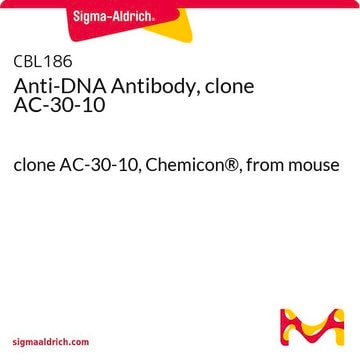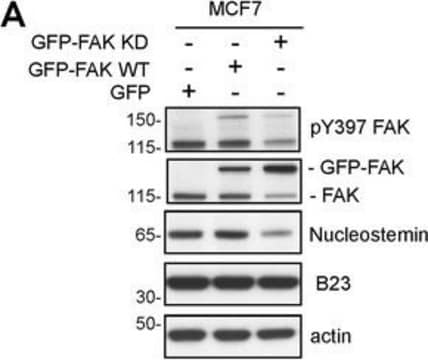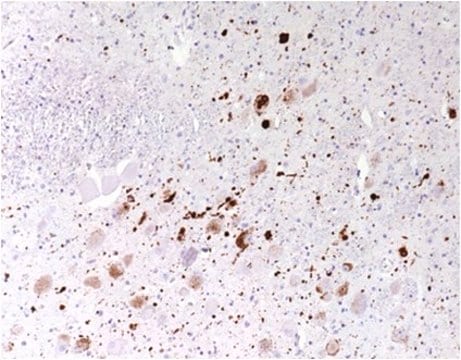MABE1134
Anti-dsRNA Antibody, clone rJ2
culture supernatant, clone rJ2, from mouse
Synonym(e):
Double-stranded RNA
About This Item
Empfohlene Produkte
Biologische Quelle
mouse
Antikörperform
culture supernatant
Antikörper-Produkttyp
primary antibodies
Klon
rJ2, monoclonal
Speziesreaktivität
virus
Verpackung
antibody small pack of 25 μL
Methode(n)
immunocytochemistry: suitable
immunofluorescence: suitable
Isotyp
IgG2aκ
Posttranslationale Modifikation Target
unmodified
Allgemeine Beschreibung
Spezifität
Immunogen
Anwendung
Entzündung & Immunologie
Qualität
Immunocytochemistry Analysis: A 1:60 dilution of this antibody detected dsRNA in Dengue virus infected A549 cells.
Physikalische Form
Lagerung und Haltbarkeit
Sonstige Hinweise
Haftungsausschluss
Sie haben nicht das passende Produkt gefunden?
Probieren Sie unser Produkt-Auswahlhilfe. aus.
Lagerklassenschlüssel
10 - Combustible liquids
WGK
WGK 3
Analysenzertifikate (COA)
Suchen Sie nach Analysenzertifikate (COA), indem Sie die Lot-/Chargennummer des Produkts eingeben. Lot- und Chargennummern sind auf dem Produktetikett hinter den Wörtern ‘Lot’ oder ‘Batch’ (Lot oder Charge) zu finden.
Besitzen Sie dieses Produkt bereits?
In der Dokumentenbibliothek finden Sie die Dokumentation zu den Produkten, die Sie kürzlich erworben haben.
Unser Team von Wissenschaftlern verfügt über Erfahrung in allen Forschungsbereichen einschließlich Life Science, Materialwissenschaften, chemischer Synthese, Chromatographie, Analytik und vielen mehr..
Setzen Sie sich mit dem technischen Dienst in Verbindung.








